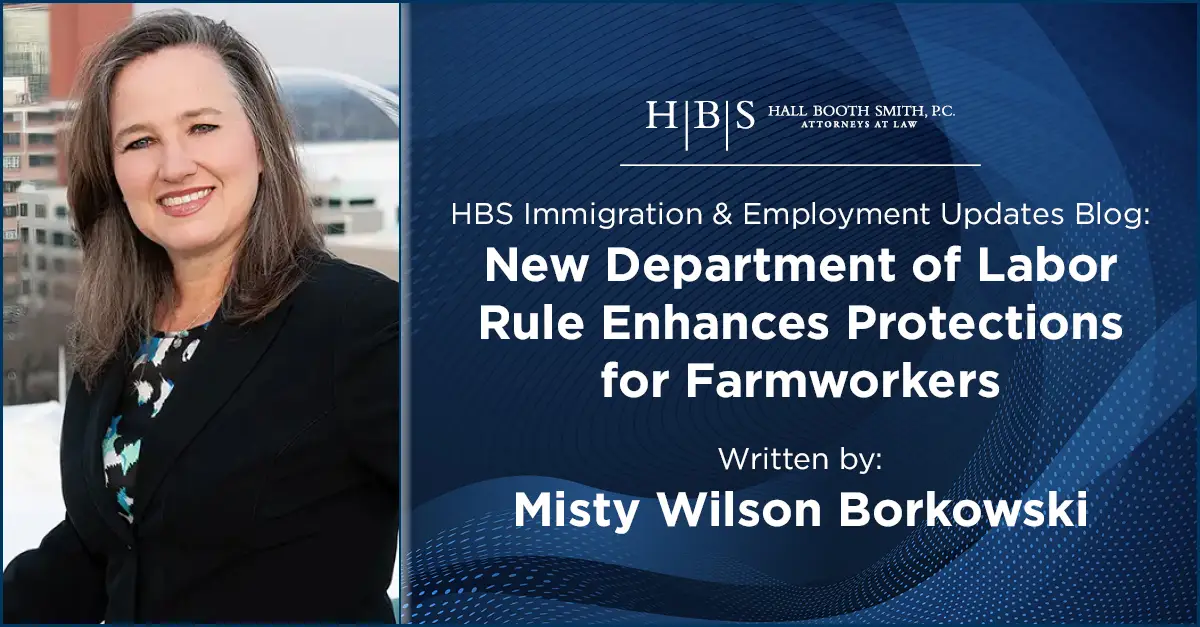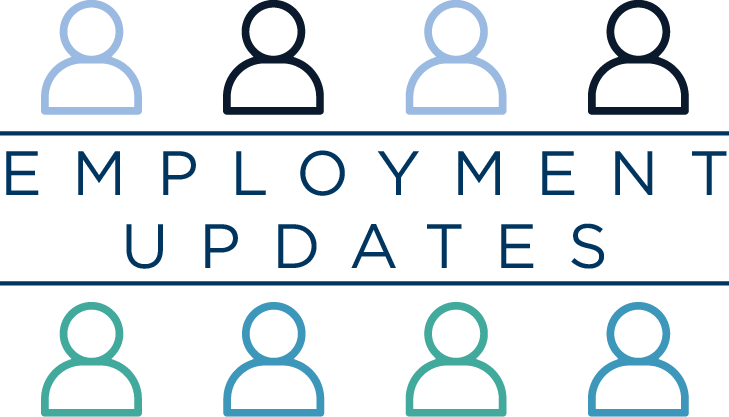
New Department of Labor Rule Enhances Protections for Farmworkers
The Department of Labor (DOL) recently announced a final rule aimed at strengthening protections for farmworkers under the H-2A program. This rule, effective June 28, 2024, addresses vulnerabilities and abuses experienced by workers in the program, promoting fair labor standards for all farmworkers in the U.S. As a result, it’s crucial for employers to understand the implications this rule has for their operations.
Rule Highlights
Worker Self-Advocacy
The rule enhances protections for workers’ advocacy regarding their working conditions.
It allows workers to engage in self-organization or concerted activities and to decline attending employer-sponsored meetings where workers are discouraged from joining unions or engaging in protected activities. Workers can also consult legal service providers and meet with them in employer-furnished housing. They may invite guests, including labor organizations and service providers, to their employer-furnished housing.
“For Cause” Termination
The rule clarifies the conditions under which a worker can be terminated for cause, ensuring fair treatment.
It requires employers to inform workers about or ensure workers should have reasonably known the policy, rule, or performance expectation before termination. Termination for cause should follow a system of progressive discipline in most cases.
Transparent Foreign Labor Recruitment
The rule imposes new disclosure requirements to improve transparency in foreign worker recruitment.
Employers must provide agreements with any agent or recruiter, disclose the name and location of any person or entity working for the recruiter who will solicit prospective H-2A workers, and disclose workplace owners’, operators’, and managers’ name, location, and contact information in the H-2A application.
Timely Wage Changes
It ensures timely updates to adverse effect wage rates for H-2A workers, preventing adverse effects on the wages of similarly employed workers in the U.S.
Employers who fail to provide adequate notice to workers of a delay in their start date must pay workers the applicable rate for each day that work is delayed for up to 14 days.
Transportation Safety
The rule includes a seat belt requirement for vehicles transporting H-2A workers, enhancing safety during transportation.
Labor Exploitation Prevention
Employers are prohibited from holding or confiscating workers’ identification documents, preventing labor exploitation and human trafficking.
Employer Accountability
The rule updates procedures for discontinuing employment services for non-compliant employers and streamlines debarment procedures.
Additional Resources
The final rule is effective on June 28, 2024. However, H-2A applications filed before August 28, 2024, will be processed according to existing federal regulation while those submitted on or after August 29, 2024, will be processed under the new rule.
The DOL has provided additional information in the following resources:
It is important for employers to review the full details of the rule and ensure compliance with the new requirements. If you have any questions or need further information, please do not hesitate to contact either our Immigration or Labor & Employment team.
Disclaimer
This material is provided for informational purposes only. It is not intended to constitute legal advice nor does it create a client-lawyer relationship between Hall Booth Smith, P.C. and any recipient. Recipients should consult with counsel before taking any actions based on the information contained within this material. This material may be considered attorney advertising in some jurisdictions. Prior results do not guarantee a similar outcome.
Blog Overview
About the Author
Misty Wilson Borkowski
Partner | Little Rock Office
T: 501.503.4479
E: mborkowski@hallboothsmith.com
Misty Wilson Borkowski focuses her practice on immigration matters, assisting both employers and individuals. She is also an Adjunct Professor at the University of Arkansas at Little Rock, Bowen School of Law where she teaches a course on Immigration Law.





Leave a comment
You must be logged in to post a comment.